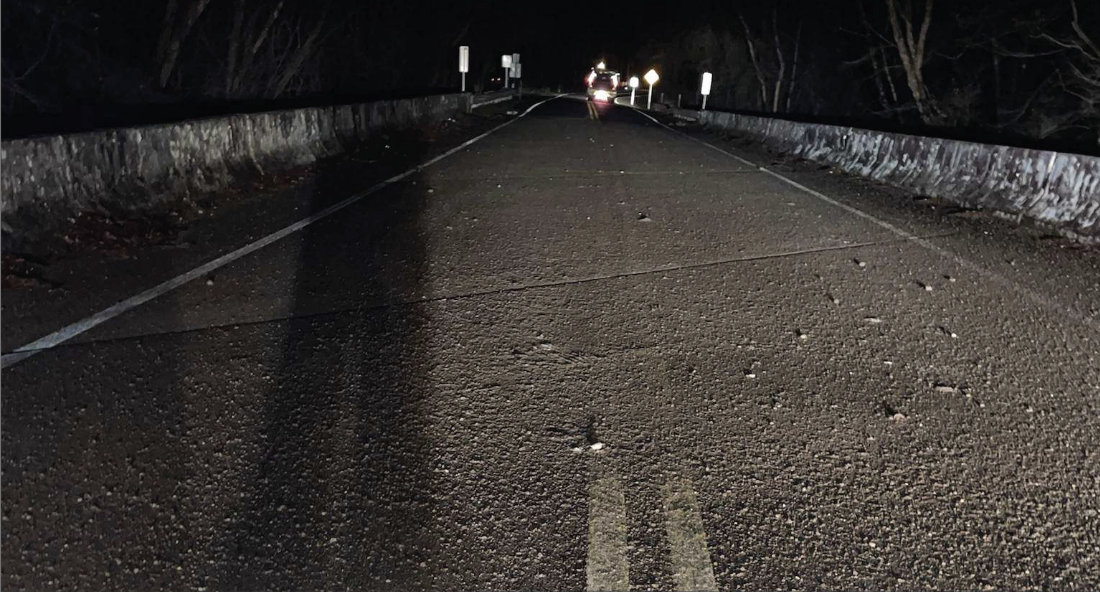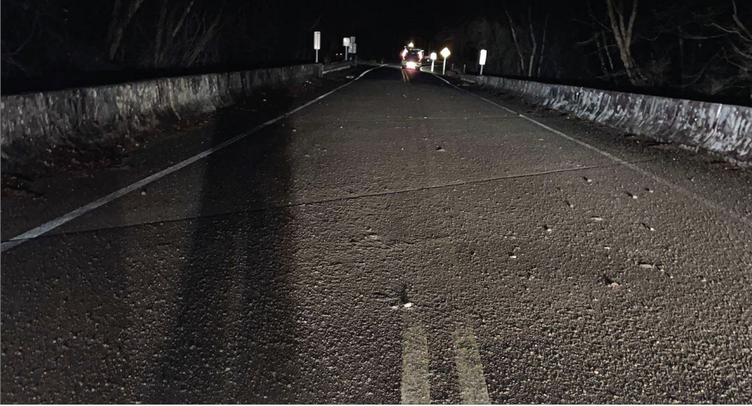As former co-worker Dan Whittle used to say, Newton County was able to "dodge an icy bullet" Sunday after we avoided most of the ice that many feared could cover our roads and electric lines and bring down tree limbs.
Kudos to our county and state road crews who had us prepared for the worst anyway.
The lesson learned from this past weekend, however, is this: We should all listen to what the weather forecast says.
We should be prepared for something that may keep us in our homes for days, but not for a few hours.
Forecasters I heard said any ice or snow would be gone in a day. Yet, people still went to the grocery stores and grabbed all the milk and bread they could.
Now we face continued empty shelves because of the problems that have been around for a year or more such as supply chain issues, staffing shortages, etc.
Meanwhile, once again, it shows Metro Atlanta residents hear only the parts of weather forecasts they want to hear and not all of them.
• • •
If you believe the government wasted resources preparing for a winter event Friday, I would refer you to news accounts from Jan. 29, 2014.
As a veteran Metro Atlanta commuter with the scars from almost eight years ago when the legendary “Snowpocalypse” event occurred, I’m even more grateful they used them.
For those of you who didn’t live in the area at the time: Despite almost no real predictions about what was about to occur, a weekday morning rain turned into slippery ice on roads as temperatures dropped quickly through the morning and early afternoon.
As it became apparent what was happening, Georgia’s government leadership decided at about 2 p.m. all state employees should go home immediately — just as most area school districts decided all students should go home at the same time. As that impending traffic disaster happened, ice formed on roads in a way that only allowed vehicles to travel about 5 mph — and it got worse as the day wore on.
School buses got stuck in mid-travel with emergency vehicles unable to get to them, trapping some students for 12 hours on buses with no food, water or bathrooms. Thousands of vehicles had to rely on good Samaritans to push them simply to gain enough momentum to roll up hills because any use of a gas pedal would only make tires spin. Motorists by the thousands were forced to walk in 20-degree temperatures after leaving their vehicles on the sides of roads and interstates.
But we still have to be prepared for another forecasted winter storm this weekend.
We got lucky this past weekend. Let’s hope any complacency doesn’t leave us unprepared simply because we’ve grown accustomed to dodging bad weather.
• • •
Lost amid surging COVID numbers, winter weather woes and sometimes dysfunctional and opaque local government was the Georgia General Assembly returning to Atlanta for the last half of its 2021-22 session.
One good thing that may come from this session is legislation that would increase the level of mental health care in Georgia.
The bill is the work of the Georgia Behavioral Health Reform and Innovation Committee, of which District 17 State Sen. Brian Strickland, R-McDonough, is a member.
The legislation has not been filed as of this writing. But a draft version of the bill showed it could, among other things, address staffing shortages in the mental health field by providing incentives for people to get trained as mental health workers.
It also could encourage insurance companies to provide coverage for mental health at the same level as physical health.
However, this is an election year so the session may not last as long as last year’s first half which saw a controversial, 98-page voting law, Senate Bill 202, approved.
Gov. Brian Kemp, who faces a strong reelection challenge this year from both the right and left, already has called for using an almost $1 billion surplus in a number of areas.
In the amended Fiscal Year 2022 budget he said he will recommend a one-time, $2,000 payment to full-time, state-funded instructional and school support staff and administrators and a $1,000 payment to school bus drivers, nurses, nutrition workers and part-time employees.
In the 2023 budget, he said he wants to give teachers statewide a $2,000 annual raise and a $5,000 raise to state law enforcement and other state employees
He said he plans to use $7 million for improvements and staffing for the GBI which has been forced to deal with investigating the spike in officer-involved shootings in recent years. The money will go for GBI crime lab equipment, improvements at GBI headquarters and hiring 32 new employees for the crime lab and medical examiner’s office.
He also wants $3 million to support a Georgia State Patrol class of 75 cadet troopers, and wants to add law enforcement and criminal justice degrees that allow more than 1,000 Georgians to obtain a degree tuition-free in Technical College System of Georgia institutions such as Georgia Piedmont College.
But Democrats criticized him for not using the extra money for expansion of Medicaid, which is essentially health insurance for low-income Georgians, or “mount a meaningful campaign to protect Georgians from COVID-19.”
They also blasted Kemp’s support of a plan to allow more Georgians to carry concealed weapons without state permits and said he should “not work to ... put more guns on our streets.”
At least one national publication asked what the plan would do “to try to prevent convicted felons and people with mental illness from carrying handguns outside.”
Tom Spigolon is news editor of The Covington News. He may be reached at tspigolon@covnews.com.




